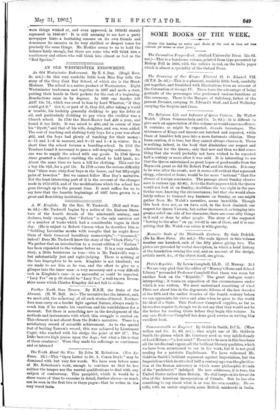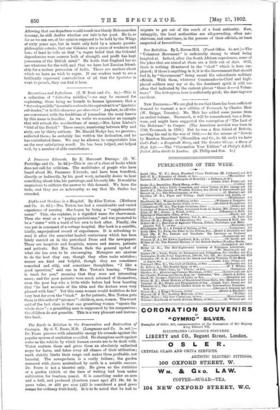Common wealth or Empire By Goldwin Smith, D.C.L. (Mac- millan
and Co. 2s. 6d. net.)—One might use of Mr. Goldwin Smith the phrase which Mr. Courtney used so very infelicitously of Lord 3filner,—" a lost mind." There is to be seen in this brochure all the intellectual vigour, all the brilliant literary qualities, which we have been accustomed to see in his work, but it is not good reading for a patriotic Englishman. We have welcomed Mr. Goldwin Smith's brilliant argument against Imperialism, but the Imperialism which he attacked half a century ago was the glorifica- tion of the Roman autocracy in which some philosophic friends of the "prOletariat " indulged. He now addresses, it is true, the United States rather than Britain. He still harps on his favourite idea of the American incorporation of Canada. But he has also something to say about what is or was his own country. He re- calls, with an unfair emphasis, some British misdeeeds in India.
Allowing that our departure would result in a bloody Mahommedan tyranny, he still doubts whether our rule is for good. He is, as far as we can see, of the opinion supposed to be held by the Whigs of sixty years ago, but in troth only held by a minute pseudo- philosophic coterie, that our Colonies are a cause of weakness and loss; at least he tells us that "a vague belief that the Colonial dependencies were sources both of strength and profit has kept possession of the British mind." He holds that England has no use whatever for the veld, and that we have lost Russian friend- ship for a useless possession of India. These are matters about which we have no wish to argue. If our readers want to see a brilliantly expressed contradiction of all that the Spectator is wont to preach, they can find it here.











































 Previous page
Previous page